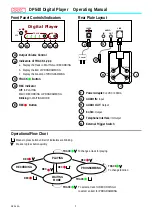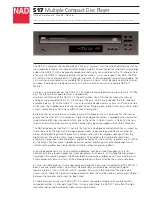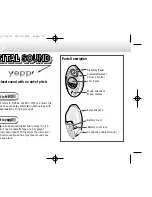
12
Connections
2. Connect the cables by following the illustrations below.
Connecting to a TV using an HDMI cable (Best)
Connecting to a TV using a component video cable (Better)
Connecting to a TV using an A/V cable (Good)
A
HDMI IN
HDMI cable
Your TV
HDMI OUT
AC IN
LAN
R
L
USB
Y
PB
PR
HDMI OUT
SBL
C
SL
FL
SBR
SW
SR
FR
MULTI CHANNEL AUDIO OUTPUT
BITSTREAM / PCM
OPTICAL
AUDIO OUT
VIDEO
OUT
COMPONENT VIDEO OUT
B
ANALOG AUDIO
OUTPUT
COMPONENT VIDEO OUT
COMPONENT
VIDEO IN
Y
PR/CR
PB/CB
AUDIO IN
R
L
Your TV
composite audio cable
component
video cable
AC IN
LAN
USB
SBL
C
SL
FL
SBR
SW
SR
FR
HDMI OUT
R
L
Y
PB
PR
R
Y
P
B
P
R
L
Y
P
B
P
R
MULTI CHANNEL AUDIO OUTPUT
BITSTREAM / PCM
OPTICAL
AUDIO OUT
VIDEO
OUT
COMPONENT VIDEO OUT
C
composite audio video cable
AC IN
LAN
USB
SBL
C
SL
FL
SBR
SW
SR
FR
HDMI OUT
R
L
Y
PB
PR
R
L
MULTI CHANNEL AUDIO OUTPUT
BITSTREAM / PCM
OPTICAL
AUDIO OUT
VIDEO
OUT
COMPONENT VIDEO OUT
ANALOG AUDIO
OUTPUT
VIDEO
OUTPUT
Your TV
AUDIO IN
R
L
VIDEO IN
Notes:
Do not tilt the connector when inserting it into the HDMI jack, and make sure the shapes of the jack and the connector
•
are matched.
When using non-HDCP compatible TV, the image will not display properly.
•
An HDMI cable carries both video and audio signals. If you want to use TV speakers, you do not need to make an
•
additional audio connection if you are using an HDMI cable.













































